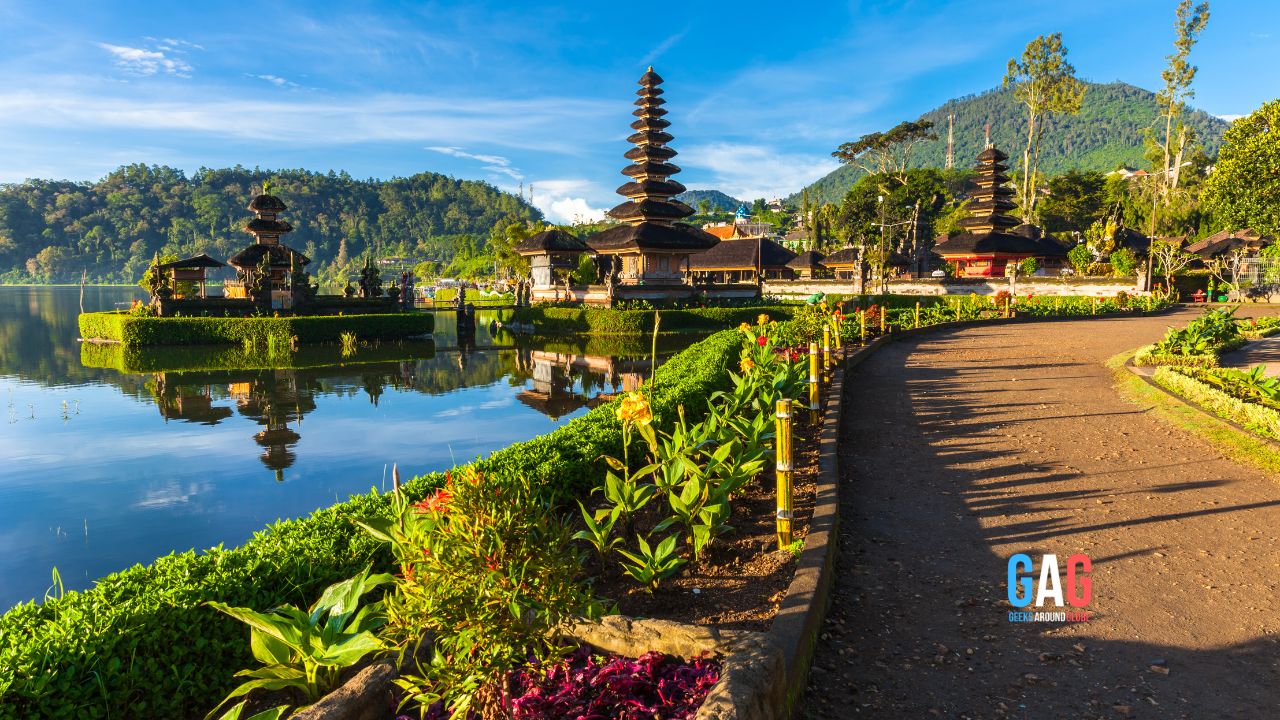Anyone fancying a vacation to Indonesia will no doubt perform some research on social media and the wider internet to find out the must-sees and precautions required when visiting Indonesia. Interestingly, it’s a country that consists of no fewer than 17,504 islands, where over 700 languages are spoken by the locals!
Wishing to visit Indonesia is an understandable desire. It’s a fascinating place – home to such creatures as the Komodo Dragon, the endangered Sumatran Tiger, an extremely small buffalo known as an Anoa, Orang-utans, sea turtles and a species of miniature wide-eyed cute primate – the Tarsier.
Don’t become a lizard’s lunch…
But like anywhere else in the world, Indonesia has its inherent hazards. The first creature on the above list, the Komodo Dragon, is a lizard which can grow up to about 3m long and weigh in at 70 kilograms. That’s the biggest lizard in the world, and to make matters worse, it has a bad attitude towards people – whom it also sees as a delicacy. The Komodo Dragon kills with its highly toxic saliva. It bites a person, reducing their mobility, then follows them and waits around patiently until they become extremely ill from the infected wound. Then the lizard eats its victim, often while the person or animal is still alive. Being attacked by one of those bad boys could really ruin your day.
…or log into a hacker’s hotspot
Aside from that, another hazard of travelling away from home is the ever-present threat of cyber-security breaches, in the form of hackers accessing any of your online devices. This happens most often in public Wi-Fi networks, where hackers set up ‘phantom hot spots’ to trap the unwary. A simple way of avoiding this is to download and install a free Indonesia VPN onto any device you’re going to connect to the internet when visiting the country.
A VPN (virtual private network) is a simple security software package that places an encrypted server from its own network between the user’s device and their wider internet connection. Because the server is encrypted, it can be used to ‘spoof’ websites that place geographical restrictions on access. It also hides the identity of the account holder, so when a person connects to the web via a VPN, nobody knows who the person is, nor where they are located.
In addition to the encrypted anonymous internet presence, reputable VPN providers make sure that their servers are installed with state-of-the-art malware and virus protection. The difference between a VPN and virus protection packages, is that the VPN will disconnect the user’s internet connection within milliseconds of any malware being detected. A virus protection package will ‘isolate’ the virus file, but not cut the connection. To be better safe than sorry, changing your passwords regularly and using a VPN is the best option.
But there are a couple more advantages to VPN usage aside from the extra security. Let’s look at a two or three of the most helpful benefits:
Stream home content when you’re away.
So you’re on vacation from the USA, sitting in your Indonesian hotel room with a cold beer. You’re celebrating the fact that you haven’t (yet) been eaten by a giant lizard or dragged off into the jungle by an Orang-utan! You log onto hotel Wi-Fi, and think you might watch your favorite Netflix show, but you find that the content is not available outside the USA. So you remember to activate your VPN as a browser extension, then head to the international server menu and choose an IP address located in the USA. Within moments, Netflix ‘thinks’ you’re in the USA at home, and you’re immediately connected and enjoying an episode of ‘Love, Death & Robots’.
Avoid dynamic pricing algorithms.
Before you set off on your Indonesian vacation, did you think to follow a few useful steps when booking your flights and accommodation from the USA. By using a VPN, you can save money off flights and hotel rooms by cloaking or moving your apparent location using the VPN server list.
Some travel portal websites can offer prices based on what the site owners feel that you can afford, making value judgements based upon conversations with chatbots and socio-demographic criteria such as the sort of device you’re using to connect to the internet and the location you’re connecting from. If you don’t use a VPN and you’re based, say, in a hotel in Beverly Hills, when you go to inquire about hotel prices in Jakarta, the algorithms on the selling website offer a higher price, because if you can afford to visit or live in Beverly Hills, the AI takes the view that you must be wealthy.
However, if before you start your online inquiry session, if you empty your cache, clear cookies, use ‘incognito’ mode on your browser and choose a less wealthy location from your VPN server list (say, Honduras) then you might be pleasantly surprised to find that the prices displayed are cheaper than when you last tried, but without using the VPN.
Prevent data throttling when streaming.
Some internet service providers (ISPs) place restrictions on individual customers or even entire suburbs and towns if a spike in data usage occurs. This most often happens when a major sporting event occurs, and everyone goes onto their streaming platform at the same time. For example, if the New Orleans Saints are playing at Caesars Superdome, a significant number of Louisiana residents are going to be heading over to their streaming service to watch the match. To avoid failure on their networks, ISPs might ‘throttle’ (i.e. slow down to an unusable speed) the data transfer rate for customers in that area.
But if you’re in New Orleans, connected to your ISP via a VPN, the provider doesn’t know where you’re located, so can’t throttle your connection.
In summary, whether you’re on vacation in Indonesia or using all your smarthome devices in Indiana, using a VPN is the best way to stay secure and make the most of your online experience.







